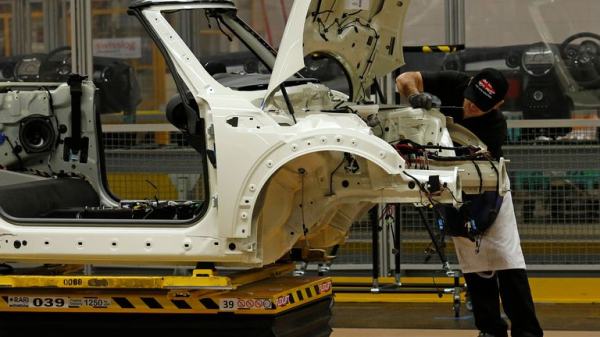BMW to make new electric Mini in Oxford after securing millions in taxpayer funding

BMW is to build its next-generation electric Mini in Oxford after securing millions of pounds in taxpayer support from the government.
The German-headquartered car giant is set to announce later on Monday details of its multi-million pound investment, which ministers say will secure around 4,000 jobs.
It comes after Sky News revealed earlier this year that BMW was preparing to invest more than £500m in its existing plant in the city, supported by £75m in government funding.
Whitehall sources declined to give details on the level of taxpayer support being offered, but did not dispute Sky’s £75m figure.
The government said BMW’s impending announcement means total investment into the country’s automotive sector has now topped £6bn over recent years.
Prime Minister Rishi Sunak said: “BMW’s investment is another shining example of how the UK is the best place to build cars of the future.”
He added: “By backing our car manufacturing industry, we are securing thousands of jobs and growing our economy right across the country.”
Business and Trade Secretary Kemi Badenoch said the investment showed the government’s plan for the sector was “generating results”.
She told Sky News: “At a time when people are concerned about what the future is going to be like for the auto industry, what we’re saying is that we’re doing a lot and it is working.”
Ms Badenoch also denied that the government had been failing to do enough to support the industry after the head of collapsed electric car battery company Britishvolt blamed ministers after it went into administration earlier this year.
She said officials had made a “very, very sensible decision… in order to protect taxpayers” as the firm had been struggling to secure private sector investment.
“Not everybody with a plan should expect the government to dole out cash,” she added.
BMW’s announcement is the latest boost for the British car industry, after figures last month suggested production had increased by almost a third compared to a year ago.
The Society of Motor Manufacturers and Traders said it showed the industry was recovering from COVID-related disruption, with much of the growth driven by production of high-tech hybrid electric, plug-in hybrid and battery electric vehicles.
Last week, electric vehicle production also began at the Stellantis factory in Ellesmere Port after a £100m investment.
Vans such as the Vauxhall Combo Electric, Opel Combo Electric, Peugeot e-Partner, Citroen e-Berlingo and Fiat E-Doblo will be made at the site in Cheshire.
